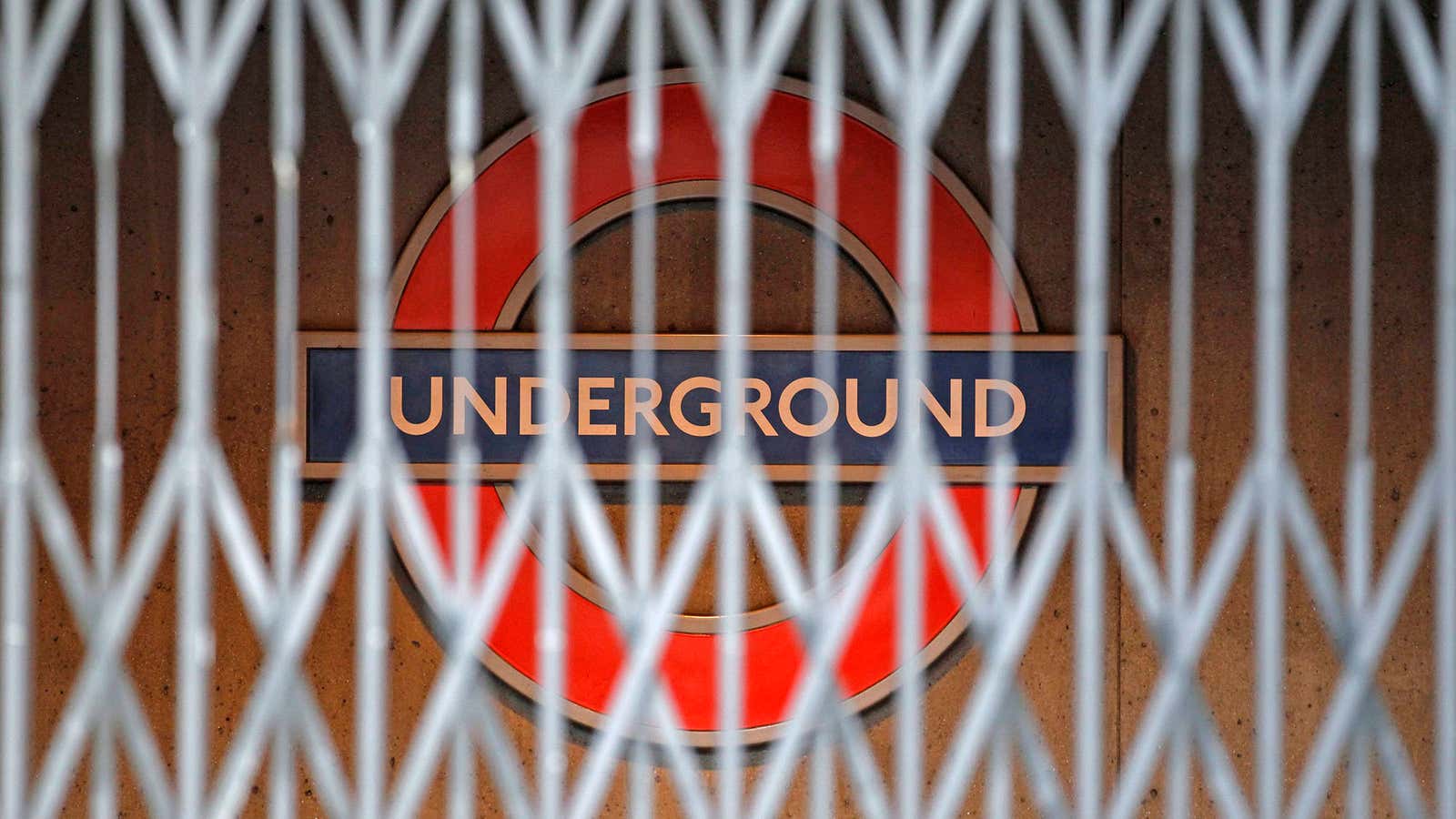Few Londoners will end the day without complaining about the Tube strike. Since it began yesterday (July 8), Uber prices in the British capital have tripled, traffic has choked London roads, and police have been deployed to remind people how to queue for buses.
When so many workers’ life is negatively affected on a weekday, there is bound to be a cost to the economy. But how much? According to the Evening Standard, “The government estimates the daily cost of a Tube shutdown is more than £50 million ($77 million).” But that is not a government estimate and is based on a 2007 survey of just 315 businesses conducted by the London Chamber of Commerce and Industry (LCCI), a business lobby group.
The LCCI asked 315 of its members in “all sectors from across the capital” about the likely impact of the strikes on their business. Although the total number of members from 2007 was not shared by LCCI, they now have more than 2,500 members.
Research based on a small sample of biased respondents speaking many years ago is not the most rigorous way to assess costs, according to Alf Crossman, an industrial relations expert at the University of Surrey. The true economic impact of such strikes is hard to calculate accurately, but that doesn’t stop lobby groups from throwing big numbers around.
For instance, the 2010 national rail strike in the UK was claimed to have cost the economy £600 million per day. The source of that figure was a quote from a spokesperson of the Federation of Small Businesses, who said, “A 10% absence from work will cost the UK around £600 million.” No support could be found for the claim that a rail strike would lead to 10% of people not coming in to work.
Yet others use such figures, without examination, as evidence of support for their own cause. For instance, Conservative members of the Greater London Authority used LCCI’s figures to claim in 2013 that, between 2005 and 2011, 20 total days of Tube strikes cost the economy £1 billion.
The most recent estimate by the London think tank Cber is that the Tube strike may cost the economy about £10 million per day. That cost, according to Cebr executive Chairman Douglas McWilliams, has fallen in the past two decades because of the rise of the digital economy. More people can now work from home without much loss in productivity.
The new estimate is based on GVA, or gross value added, by Londoners to the economy daily. After accounting for lower activity on weekends and bank holidays, London probably adds about £1 billion to the economy daily. On a day of the Tube strike, McWilliams writes, “I would be surprised if the impact is as much as a loss of GVA of 1%.”
This is an updated version of an article published on The Conversation, which Akshat co-authored with Will de Freitas.
